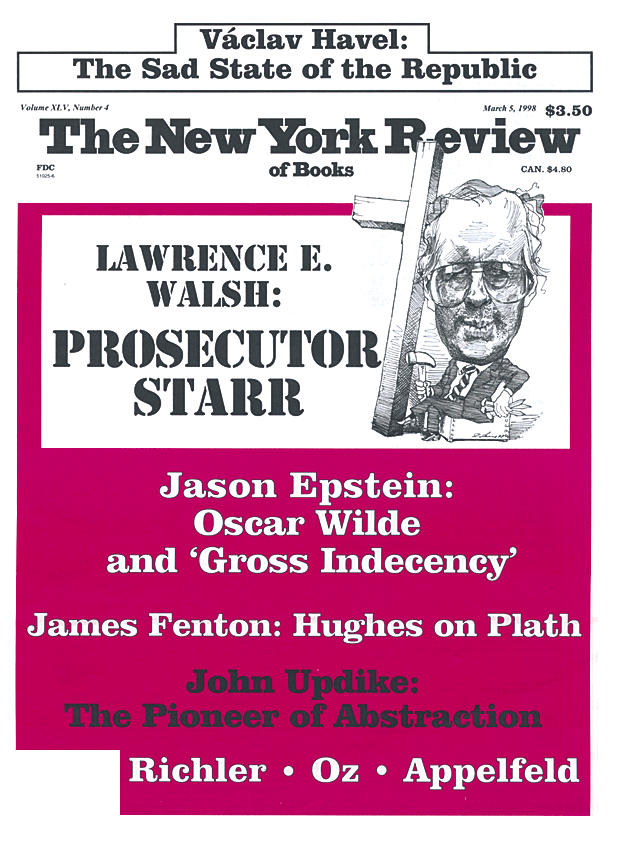In response to:
Drunk with Love from the October 23, 1997 issue
To the Editors:
In reading the review of the Blochs’ Song of Songs [NYR, October 23, 1997], there were two glaring factual errors. Alicia Ostriker argues that the “strategy of the Blochs” mirrors that of Marcia Falk in “divid[ing] the Song into independent poems.” Nothing could be farther from the truth. Marcia Falk does indeed split up the Song of Solomon into 31 separate and discrete poems. In contradiction, the Blochs argue persuasively that this is incorrect and that due to the consistency of characterization, themes, poetic voice, and imagery, the Song is a single poem. This distinction is of fundamental importance in understanding the Song of Solomon, and I think that the Blochs have the better argument.
On a minor key, Ms. Ostriker also contends that the Blochs’ version which interprets “sahar” as moon is unique, not appearing in other versions (“Your navel is the moon’s bright drinking cup”). If Ms. Ostriker had bothered to familiarize herself with the Bloch bibliography she would have discovered the reference to the translation of Diane Wolkstein, which clearly also interpreted “sahar” as moon.
The Bible is the word of God. It is important to get it straight.
Gerard Launay
Alicia Ostriker replies:
Some translations of the Song of Songs print it as one continuous text, others as a set of individual poems. The Blochs’ translation, like Marcia Falk’s, does the latter; it also distinguishes typographically (through the use of italics and boldface) among supposed speakers within the Song, as of course the Hebrew does not. Regarding the Song’s origins and its many ambiguities, the Blochs like other contemporary scholars offer a range of suggestions and suppositions while recognizing the limits of our knowledge. On a most important point of contention, however, they argue that the Song is originally and essentially a secular work—a human lovesong rather than a divine one—which might or might not mean that we may also experience it as “the word of God.”
Wolkstein’s appealing translation of 7:3, which I overlooked in my review, is “Your womb is a moon-shaped goblet/ never wanting for wine.”
This Issue
March 5, 1998


